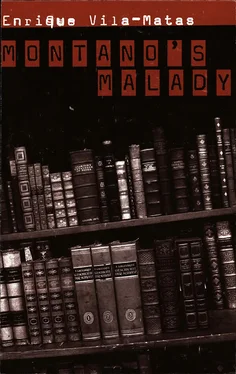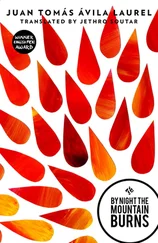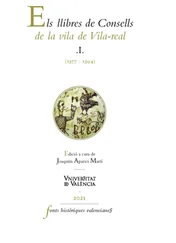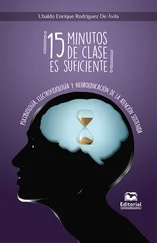I was forced to confess the truth, namely that I had no idea about this curious relationship between narrative and healing. So Montano explained, in a sweet and friendly voice, that the connection between storytelling and curing illnesses had been suggested to Walter Benjamin by a German friend who told him about the healing powers of his wife’s hands, saying that their movements were very expressive, but it was impossible to describe their expressiveness, because it was as if those hands were telling a story.
“In such a way,” said my son, “in such a peculiar way, Walter Benjamin was reminded of an intimate scene: that of the boy who, when he falls ill, is sent to bed by his mother, who then comes and sits by his side and starts telling him stories. As a result of this memory, Walter Benjamin wondered whether narrative might not in fact be the most propitious atmosphere, the most favorable condition, for a large number of cures.”
Montano proceeded to reflect on the propitious atmosphere created by the narrative space, and I felt a little ridiculous for having confided my illness to him and having left myself at the mercy of the expressive movements of his hands as he aired his opinions on the matter. And the thing is, I had the impression that, as he held forth, including in his meditation brilliant stories of his own invention, he was seeking to heal me of my illness when this was not exactly what I had come to Nantes to achieve, but, in my role as his father, I had come primarily to help cure his illness, his tragic inability to write.
“I have to go back to my childhood,” Montano concluded, “to the days when I fell miserably ill, and Mom would tell me stories that always made me feel better; I have to go back to my childhood to deduce with absolute certainty something that may seem simple to you, but in fact is not: in the same imperceptible manner in which it began, the illness one day takes its leave.”
c) Once in La Cigale, Montano became emotional and started talking about his mother and how, as soon as I left the house, she would dance for joy. At the top of his voice and on the verge of hysterical sobbing, he introduced the subject of his late mother and did so in the style that is so characteristic of him when he suddenly becomes emotional for some reason, a style which, like the good critic I am, I have analyzed as if it were a text.
This emotional style, which finally drifts into the most disturbing melancholy, involves despising the straight line and wandering, adding personal touches, following ellipses and labyrinths, retreating, going around in circles, suddenly touching that inaccessible core which is the subject of his mother — whenever I have seen him so emotional, he has been talking about his blessed mother — and again retreating and again further circumlocutions obeying contrary instincts, until he mercilessly bares and ridicules any truth that’s liable to be certain with the exception — and here he again advances, again obeying contrary instincts — of one immutable truth, the only one he claims to possess with absolute certainty: that he has only ever loved one person in this world. That person is María, his dear late mother, my first wife of sacred memory.
d) After the meal, Aline, understandably saddened, slightly naively told Montano that he could love her as well. My son pierced her with his blue, perpetually cold eyes, the same cold, blue eyes his mother had. Aline was frightened, and I realized that Montano dominates her with a certain ease. That said, her fear quickly passed, and shortly afterward she dared to tell my son that persevering in obstinate grief over the disappearance of his mother was to behave with impious stubbornness. It wasn’t the best thing she could have said. Montano adopted a very somber and strange air. I immediately asked him if anything was wrong, other than being angry at her. He looked most unusual, with a wild expression in his eyes that I had never seen in him before. I again asked him if anything was the matter and he still did not answer me. His blue eyes were colder than ever.
“You look very sombre,” I said to him.
“Sombre, me?” he answered in a mocking tone. “Not so, my lord; I am too much i’ the sun.”
He answered like Hamlet—“I am too much i’ the sun,” exactly what the prince says — and I began to draw conclusions, one at least. Maybe he wanted to avenge his mother’s death. More than once he had stupidly insinuated that I had killed her. But perhaps this was the wrong conclusion to draw and he was not thinking about Hamlet or anything, perhaps his enigmatic and volatile behavior was due simply to the confusion he felt at his tragic inability to write.
Whatever the reason, Hamlet’s unexpected appearance reminded me of an idea that came to me in the hotel during the night, when I could not sleep. The idea was in some way related to Hamlet’s ghost and was intended to help Montano overcome the anxiety caused by his writer’s block. The idea originated as follows: during the night, unable to sleep, I suddenly switched on the light in my bedroom, when I thought I saw a spider crawling across the carpet. The spider, incautious and overhasty, came limping sluggishly toward me, stopped, suddenly noticed the gigantic shadow in front of it, and, not knowing whether to beat a retreat or to keep on going, contemplated its enormous enemy. On seeing that I barely moved, it plucked up its courage and continued forward, with a mixture of rashness, guile, and fear. As it passed next to me, I was about to crush it because it disgusted me, but instead I lifted up the carpet and helped it to escape, I spared its life. Why? Because my philosophy went beyond an all-too-easy impulsive gesture, just as Hamlet — I thought at the time — hesitates between knowledge (doing nothing) or rejecting knowledge in favor of an ancient moral custom we call revenge, which is basically an all-too-easy, animal gesture. Part of the greatness of Shakespeare’s Hamlet derives from this hesitation, a theory I expounded upon in my penultimate book.
In this way I moved from the spider to Hamlet and from there to my colleague Harold Bloom, who in a recent essay asks, “Why does Hamlet return from the sea?” Hamlet could have gone to Wittenberg, Paris, or London. But the truth is, Bloom goes on to explain, he cannot return to Wittenberg to study, because the prince of Act V has nothing left to learn— he already knows it all . It is a ghost who returns, whom I imagined in the middle of last night to have something in common with Jacques Vaché.
This is how things went last night in this hotel room where I continue to write this diary that is turning into a novel. Bloom’s question suggested to me a similar one that I could ask Montano today, which might help put him on the ideal path on which to escape from the tragedy of his blocked literary horizon.
The question was this: “Why does Marcel Duchamp return from the sea?”
On mentioning that Duchamp returns from the sea, I would be referring to how, after a long stay on the other side of the Atlantic, in the United States of America, one fine day Duchamp returned to Paris, where, with the clear-sighted vision of someone who, in the field of artistic creation, already knows it all , he continued in his practice of renouncing the all-too-easy gesture of “crushing the spider,” by which I mean creating works of art that merely repeat exhausted formulas.
Wide-awake in this room last night, I thought that as soon as I saw Montano today I would tell him that, if his only problem was writer’s block, it had an easy solution. À la Duchamp. All he had to do was calmly devote himself to doing nothing, the same as those artists who already know it all . Was it so dramatic to go through life like Duchamp, declaring oneself to be at a distance from artists who repeat what has already been done and personifying the wisdom of someone who has seen the sea, seen it all, and who, therefore, is a happy ghost, whose daily gestures bring on, for example, no more than the contented succession of the invisible books one writes, not on paper but in the thin air of every day or on life’s furtive surface?
Читать дальше












